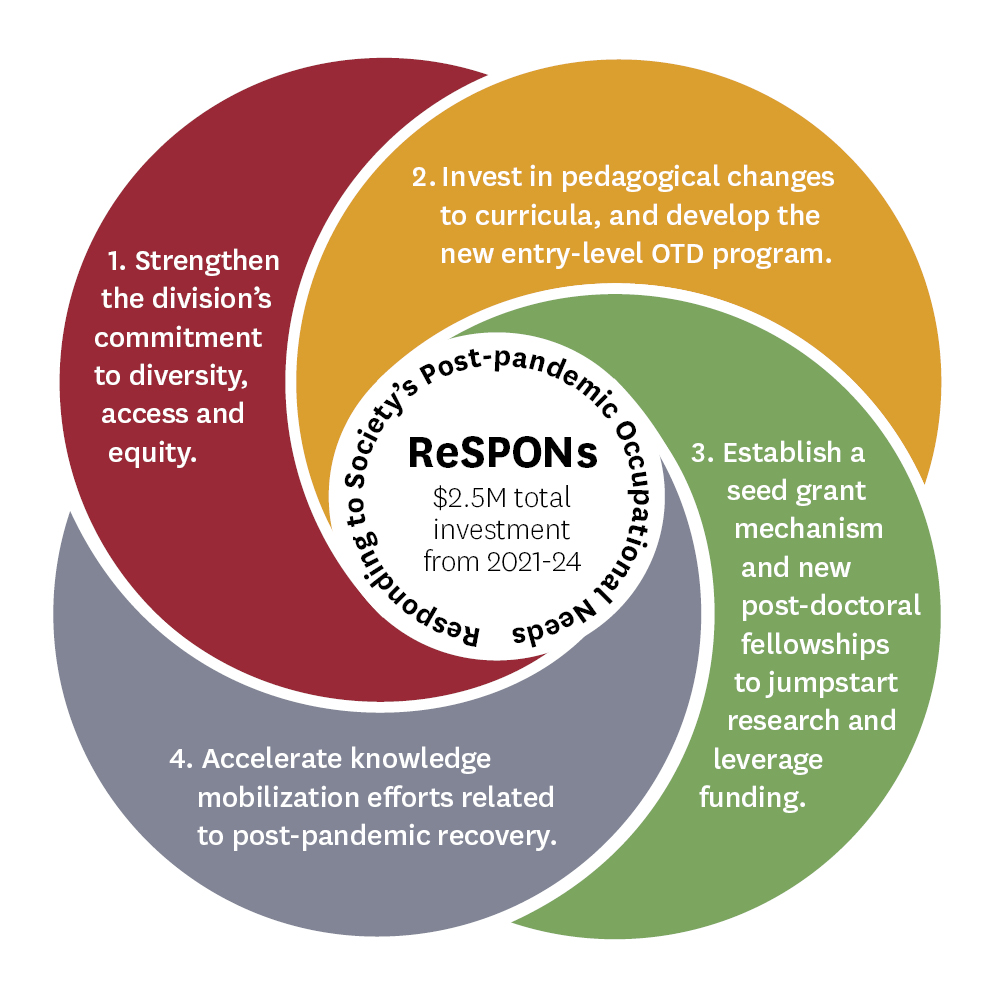Responding to Society’s Post-pandemic Occupational Needs (ReSPONs) initiative
Society is simultaneously being confronted by multiple pandemics, including COVID-19, systemic racial injustice and widening occupational inequalities, which are affecting all aspects of life. People worldwide, including in Los Angeles, are struggling to cope with the physical, mental, social, emotional and economic impacts of these intersecting and pervasive events that have led to occupational disruptions in the lives of individuals, families and communities. These disruptions will continue to be experienced during the transition to post-pandemic life, and likely will persist for many years to come.
USC Chan’s new three-year, $2.5 million initiative — known as Responding to Society’s Post-pandemic Occupational Needs — addresses the intersection of these pandemics affecting society by supporting advancement and innovation across the division’s research, education and practice enterprises. It is also responsive to the priorities and goals of the Chan Strategic Planning Implementation Teams and the Chan Diversity, Access, and Equity (DAE) Committee, and includes four priority areas:
- Strengthening the division’s commitment to diversity, access, and equity to develop and maintain a more accessible, inclusive, diverse, equitable and supportive environment for all students, staff and faculty. Specific activities will include an increase in the number of Vision Scholarships, DAE and Restorative Practices trainings and the establishment of stakeholder advisory groups.
- Investing in pedagogical changes in the division’s curricula, supporting the development and sustainability of alternative fieldwork models in role-emerging settings and creating new courses in the entry-level OTD program that are inspired by, and responsive to, various pandemic and post-pandemic issues. Specific activities will include the infusion of inclusive pedagogical practices throughout all curricula, including a unifying thread dedicated to justice, equity, diversity and inclusion principles, and the expansion of innovative role-emerging fieldwork models and residency placements in the community that support our students and prepare them for future practice.
- Establishing a division seed grant mechanism and post-doctoral fellowships that jump-start post-pandemic research and leverage large-scale extramural funding. Specific activities will include the provision of seed grants up to $50,000 to support early-stage projects or research innovations targeting populations that have been disproportionately affected by the pandemics, and the creation of post-doctoral fellowships.
- Accelerating the division’s knowledge mobilization efforts related to post-pandemic recovery to generate scholarly ideas, broaden their use and relevance for stakeholders and spark new practice innovations. Specific activities will include the 2021 USC Chan Occupational Science Symposium and subsequent “think tanks,” supports for wider engagement of community stakeholders, support for publication/writing groups and funding for dissemination efforts within and beyond academia.






